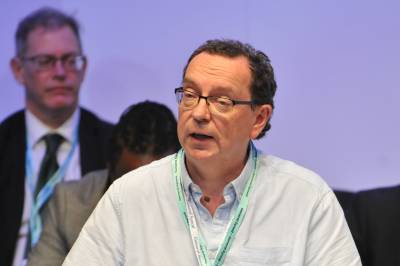23/01/2024
An anonymous survivor and member of the Redress Survivor Working Group explains how their experience of abuse, and the traumatising legal process that followed, is making them more determined than ever to help the Church design a National Redress Scheme that “prioritises the needs of survivors."
Reporting abuse and finding support
Readers may find some of the content upsetting. If you need access to support, please contact the Safe Spaces helpline by calling 0300 303 1056 or by visiting this Church of England webpage, where external support services are listed, including listening, advice, and counselling services.
By an anonymous member of the Redress Survivor Working Group
For the past two years, alongside other survivors of Church-related abuse, I’ve been helping the Church of England design its yet-to-be-launched National Redress Scheme, ensuring that when it does open to applicants, it offers not just financial redress and apology, but other forms of redress and meaningful support.
In the year 2000, I made a complaint to police about the sexual abuse I had suffered as a child back in the 1960s. The police interviewed me at length, arrested my abuser and made an application on my behalf for criminal compensation that included a report from my GP which said that I would “probably never fully recover from the psychological injuries I had suffered”.
My abuser then went on to deny the allegations I had made to the police, and the priest I disclosed my abuse to also denied any knowledge of my allegations. Based on their denials, the Crown Prosecution Service told me that they could not bring any criminal charges against my abuser.

"I know firsthand that schemes which aim to support and help, can, if not carefully thought through, be as damaging to a survivor as the abuse itself."
A judicial process that failed to deliver
So began a gruelling nine-year battle to prove my allegations were true. Eventually, my abuser confessed to the police that he had indeed abused me over a two-year period, which led to a criminal trial and finally, a compensatory award based upon the new evidence.
But my brutal experience of a judicial process that failed to deliver due to the denials of my abusers and the collapse of the case, was almost as damaging as the abuse itself.
The stress of those nine years, on top of the abuse I suffered, resulted in the loss of my career and a serious collapse of my mental health. Fortunately, thanks to the support I received from my wife and my children, I am now in a better place.
We are channelling our experiences into building a Scheme that prioritises the needs of survivors
I know firsthand that schemes which aim to support and help, can, if not carefully thought through, be as damaging to a survivor as the abuse itself. It’s because of these experiences that I am writing this today and why I am contributing my time and energy to help design the National Redress Scheme.
Members of the Redress Survivor Working Group involved in the project understand trauma and we are channelling our experiences into building a Scheme that prioritises the needs of survivors. The Scheme that I and other survivors are committed to achieving aims to remove many of the obstacles I faced. Unlike the adversarial legal system that I experienced, we are helping to design a National Redress Scheme which offers a safe space, free from denials and retractions, and which is straightforward and non-judgmental.
I am confident that when the National Redress Scheme is launched, survivors will find a Scheme that is as simple as can be, supportive and designed to make it possible for applicants to get sense of closure and offers of redress they deserve.


